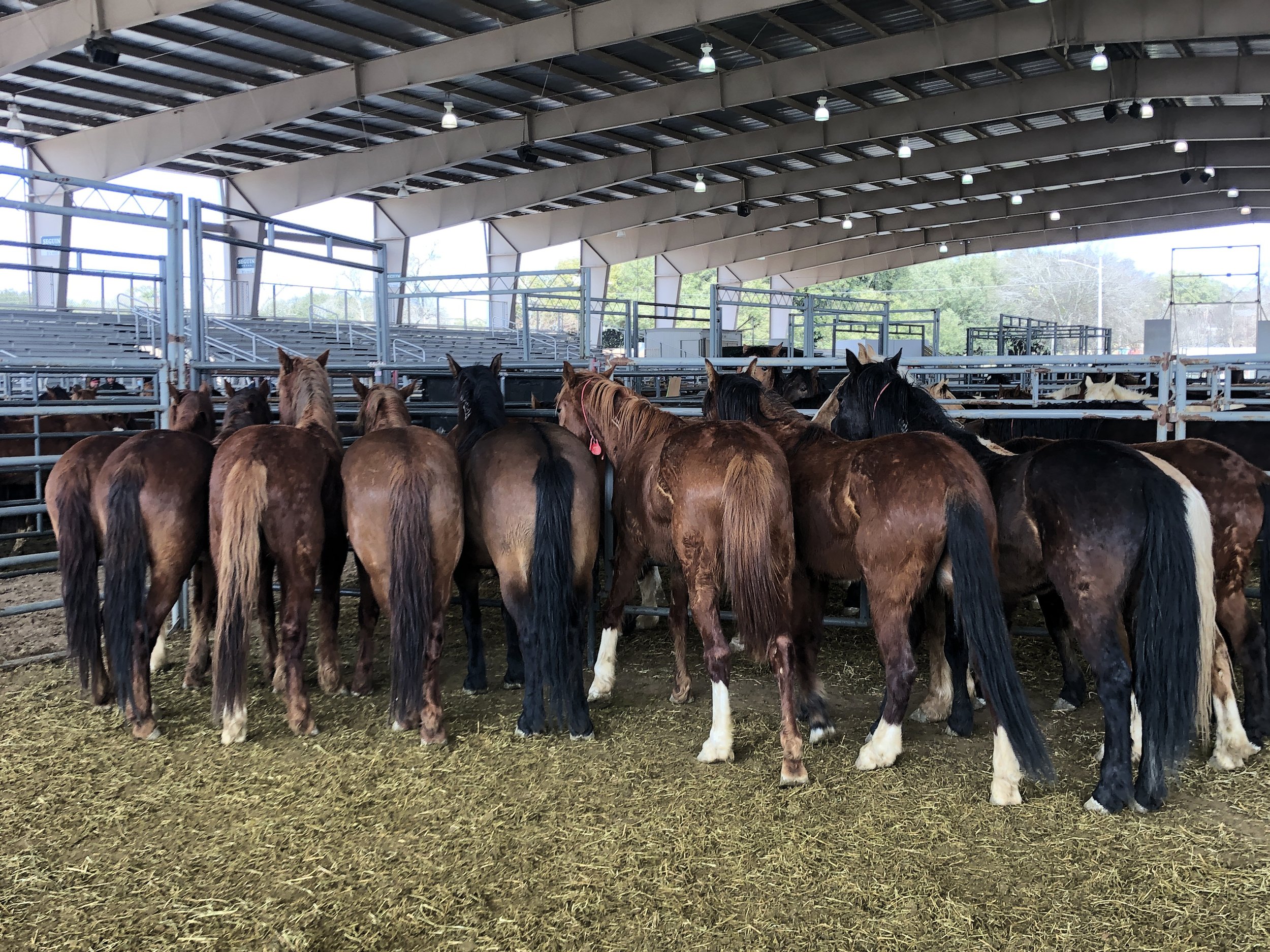The Auction
Originally Published February 5, 2022
She had soft, brown eyes, strawberry blond hair, and legs that went on forever. Moving in the swirl of the pen she was one of hundred or so donkeys that had arrived at Sequin for a Bureau of Land Management (BLM) auction. We fell in love immediately. The donks were popular today. Many were chosen as companions for equines at home, being good company with few requirements. One buyer wanted a companion for a lonely donkey at home. He left with two.
The mustangs were popular as well. Most were sorrel, a few bays, and one storybook buckskin with a dark mane, tail and toes that went for the highest bid of the day, at $280. The starting bid was $125. Most went for $135. An incentive program would return $1000 to some successful adopters after a year.
The BLM holds these auctions in several locations across the west. These are adoption auctions, meaning that you don't get title to the equine for a year, until the BLM has verified that the homing requirements have been met. "Wild horses and burros" as they are referred to, are been rounded up in ten states and brought to BLM holding facilities. The group at Seguin today is only a small number of the equines rounded up and held in the BLM pens.
Buyers are diverse: hardened ranchers, fathers and daughters, mothers and sons. All have been vetted through a careful application and background process. Quiet conversations by the rails reveal an unabashed love for the beauty of these wild creatures. The auction went quickly, with nearly every equine adopted. Those that weren't would be added with others to the next auction.
One adoptee was lost shortly after boarding, an aneurism they say, perhaps brought on by the stress of the ordeal. The rest would be bound for a more secure, if docile future. Most go on to careers as saddle horses.
Of course there is more to the story. There are questions about the need for round ups in the first place; whether the "overcrowding" in the pens isn't a situation created by the BLM itself; whether the leasing of public lands doesn't in fact amount to a subsidy for the cattle industry; whether the round up business isn't just another revenue source for that industry, the ecological effect of reducing grasslands for the carbon emitting agricultural industry, and so on. But these are questions for another day.


